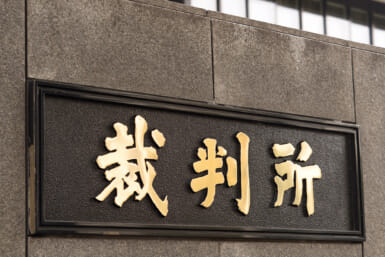by Luke Poliszcuk
In September 2000 the United Nations Millenium Declaration was signed into being with eight Millenium Development Goals, two of which were to ensure environmental sustainability and develop a global partnership for development. Unfortunately, at the close of the first decade of the 21st century, we are not doing well on sustainable development. At present, 1.1 billion people live without clean drinking water, 2.6 billion lack adequate sanitation, and 1.8 million people die every year from diarrheal diseases including cholera, of which 90 percent are children under five. To make matters worse, by April 2010, the world population will likely exceed 7 billion people, meaning these numbers could likely increase.
2010 marks the start of a new year and a new decade. This year, many companies will once again start expanding their operations and investments and begin to look forward to the opportunities that lie ahead, rather than back at the economic devastation that was. GE Corporation, winner of the prestigious 2009 Ceres-ACCA sustainability reporting award, is taking the lead with its strategic ‘ecomagination’ program. At its 2005 launch, CEO Jeff Immelt stated, “Ecomagination is GE’s commitment to address challenges such as the need for cleaner, more efficient sources of energy, reduced emissions and abundant sources of clean water.” But ecomagination is not just about doing good for society, it is also about doing good business. GE set an annual revenue goal of $25 billion from ecomagination products by 2010. By 2008, the ecomagination portfolio included more than 80 products and the project generated more than $17 billion in revenues, an increase of 21 percent from the previous year, all while accomplishing over 1 million tons of greenhouse gas emission reductions and energy savings equivalent to 17 days of residential energy consumption for the whole of Tokyo.
But it is not just global conglomerates that are taking the lead on sustainability. A survey of Australian small and medium enterprises (SMEs) found that 70 percent are undertaking some kind of sustainability activities. Topping their sustainability priorities are energy efficiency, managing waste and reducing emissions. These all make good business sense in today’s highly competitive and strictly regulated business environment.
In order to implement a successful sustainability strategy, companies first need to analyze areas in which they have a high level of impact, then identify particular risks and opportunities within the organization. A simple way to start this is with a basic sustainability report, produced using the G3 Guidelines, the leading global standard from the Global Reporting Initiative (GRI). The G3 reporting guidelines template can be downloaded for free from the GRI website, and GRI provides specialized support for SMEs. By producing a sustainability report, the company can identify major areas of impact and opportunities for cost, waste and energy reductions. Areas to focus on include electricity use, water use, paper and packaging, as well as transportation and electricity sources.
Successful implementation of a sustainability strategy will require a company-wide effort to understand the risks of not focusing on sustainability, and also the opportunities gained through sustainability leadership. Key personnel will include the CEO, the CFO, the CIO and HR manager to lead top-down initiatives, and ‘sustainability champions’ from each section to provide ideas from the bottom up. Another benefit of establishing a sustainability leaders team is the creation of additional communication channels throughout the company.
It will then be possible to establish goals and targets for the next year, and start to implement a long-term sustainability strategy similar to GE’s ecomagination. So, for this New Year’s resolution, why not take the lead and implement a sustainability strategy at your organization? It’s the quickest guaranteed way to help your company, your career and the planet.
External Link:
Ecomagination









